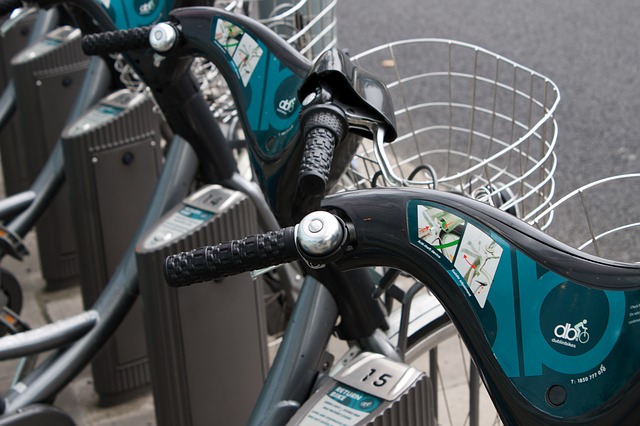As I write this article, Beijing has issued its first ever Red Alert on account of lethal air pollution. The “Airpocalyptic” view from my desk made me question the way we look at ridesharing and on-demand platforms. They are not just the next profit-making startup unicorn and in fact, have the capability to make a city less polluted, smarter, connected and also safer.
Ridesharing morphing into smart city and mobility
In her thought-piece, Who’s Who in Europe’s Mobility Equation (and the Unique Role they Play in Redefining the Playbook) CSW’s, Priti Ambani wrote, “One vertical which is dominating news and case studies on the digital economy is mobility. A smart city is incomplete without smart mobility and this reality manifests itself in Europe, one of the most developed regions in the world.”
Interestingly, the concept of a smart city is spawning across the world as emerging smart city and mobility platforms focus on improving their respective city’s mobility, building a green city, and connecting transportation networks powered by IoT and big data, resulting to positive disruption, beyond the billion-dollar valuation and profits that are often connected to sharing economy platforms.
By now everyone is aware of Uber, Didi, Grab Taxi, Lyft, Zipcar, BlaBlaCar, CarAmigo, Getaround. But there are many more mobility solutions that work in sync with existing infrastructure to reduce resource use and improve efficiency. Let’s take a look at them.
Liftshare (United Kingdom)
UK-based carpooling or car sharing platform is more than just an on-demand service – dubbed as UK’s largest car sharing community, either you offer or share a lift, while saving on travel costs, and you meet new friends along the way. And because you share a car, you decongest the city and cut pollution. One of the users pointed out, “Originally I joined Liftshare as I wanted to do something to beat the effects of global warming – but I love meeting such a wide range of interesting people too!”
Locomute (South Africa)
Dubbed as South Africa’s first car sharing company, Locomute is redefining urban mobility according to its rules. “Locomuters” search via mobile app any car nearby they can use 24/7 in “Locoparks.” While there’s a one-time price to pay of 199 Rand (approximately $13USD) for a lifetime membership, you can reserve a car, drive, and leave and lock it once done. Why buy a car and pay for premium insurance when you can Locate > Reserve > Unlock > Drive > Lock > and just pay for a monthly usage? Not only do you save travel costs, but also maximise the use of parking spaces and cars in the city!
Moovit (USA)
The convergence of crowd’s knowledge, IoT, and connected transportations will make your city efficient, smart and mobile. Moovit is on a mission of improving transit routes worldwide thanks to the 30 million riders – the app serves as your personal transit planner that provides step-by-step guide towards your destination, real time updates and advisories and live arrival and departure times.
LaZooz (Israel)
Frankly, this is the first time I’ve come across the term decentralised public transportation powered by Blockchain, which makes LaZooz a very interesting smart city and mobility platform. This Israeli-based company rallies a “fair share” participation model in terms of car sharing. How does it work? It’s quite technical, though, but the community itself rates each member in a collaborative and transparent way. “The community collectively decides about the reward in zooz for each contribution via sophisticated protocols. The ‘weight’ of each member’s input is dynamically set by the community itself. Many people around the world have already taken an active part in this operation, and the community is growing every day.
“By using cryptocurrency technology La`Zooz works with a “Fair Share” rewarding mechanism for developers, users and backers.” Move over cash payments and credit cards. This is a harbinger of the future of smart city and mobility. Don’t you think so?
Carma Carpooling (USA)
Cut the cost, save the earth and meet new friends with Carma Carpooling’s shared commute. While it nearly works the same as Liftshare, the shared mobility option among commuters decongest the city’s cars especially during rush hours and cuts costs on toll fees. No different from hitchhiking from before apps existed, but the digitised version of carpooling is systematised, efficient and most of all fun!
JustPark (United Kingdom)
Cars aren’t the only ones shared or ordered, even parking spaces. Find your spot or share the space and you maximise the city’s mobility for as low as £8 for 24 hours in London’s central locations with JustPark pre-booking parking spaces. What makes JustPark unique? No more parking tickets, save money and you have a peace of mind while you carry on with work.
DriveNow (United Kingdom)
You think sharing economy is for startups and SMEs only? BMW has thrown its stakes in this business model as well with its carsharing service dubbed DriveNow. It’s involves three easy steps. Find a car using the mobile app, drive and leave the car – parking space, fuel and road taxes are inclusive in the service, providing you more flexibility and mobility while in transit. Simply, “Drive and park. Lock and leave. Done and dusted.”
DeLijn (Belgium)
One of the most proactive countries in terms of smart city and mobility is Belgium. With De Lijn (“The Line”), a company run by the Flemish government is a major solution to decongesting traffic in the city with its crowdsourced public transportation network of about 3650 buses and 359 trams.
Seriously, this image sums up what smart city and mobility platforms can do?

[Image from Independent Co UK]
This is a future worth working towards. What do you think? Are there other platforms uniquely solving mobility issues? Share via a Tweet and tag @crowdweek




0 Comments